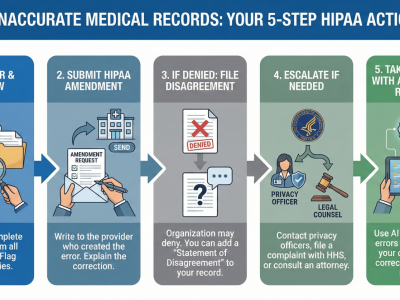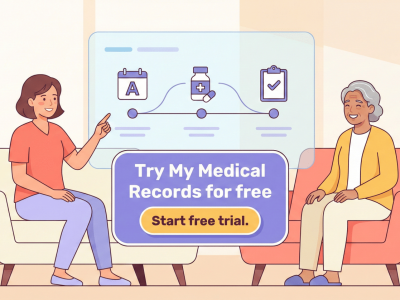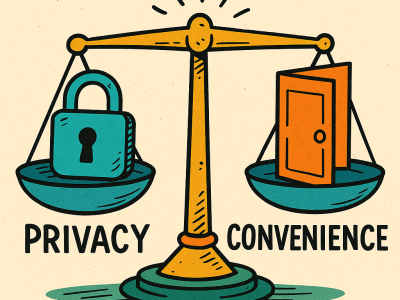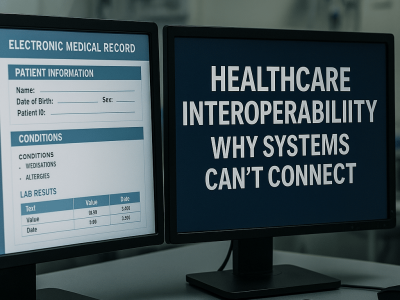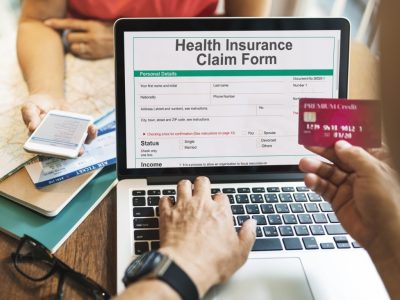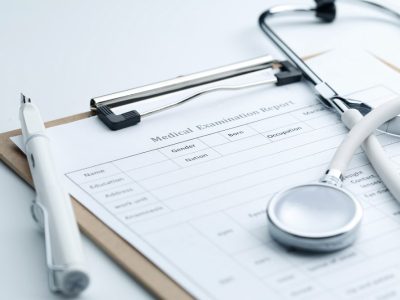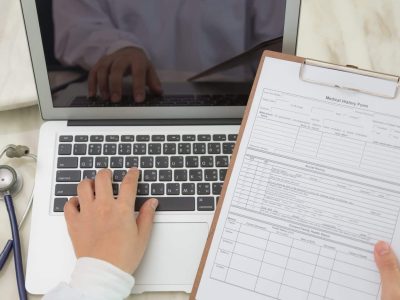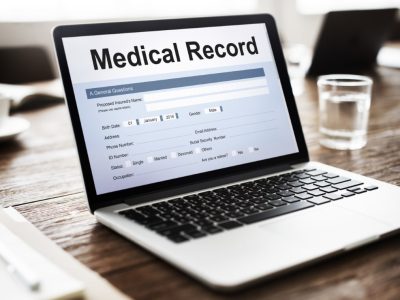When a doctor retires or a clinic shuts down, your medical records don’t just vanish. Learn how to protect your health information and ensure continuity of care with the help of secure medical record storage.
KEY TAKEAWAYS
Medical records are legally protected even if your doctor retires or a clinic closes.
Patients may need to act quickly to retrieve or transfer their records.
Clinics may transfer files to third-party custodians or state-appointed entities.
Digital solutions offer safer, more convenient long-term storage options.
My Medical Records helps secure, access, and share your files whenever needed.
Table of Contents

When a physician decides to retire or a healthcare facility ceases operations, it’s natural for patients to wonder, “What happens to my medical records?” These documents contain years’ worth of diagnoses, treatments, medications, and personal health details that are vital for your ongoing care. Losing them could result in gaps in treatment or repeated diagnostics.
Healthcare laws, including HIPAA in the United States, require that medical records be preserved and protected even after a provider retires or shuts down. However, the responsibility to manage and transfer these documents often falls onto either the healthcare provider before closing or the patient themselves. If you’re unsure how to navigate this process, or where your data ends up, you’re not alone.
Understanding your rights, responsibilities, and available solutions can save you time, frustration, and even your health. In this article, we’ll explain exactly what happens when a clinic closes and how to ensure your medical records are safely stored, easy to access, and secure.
Who Owns and Manages Your Medical Records After Closure?
It might surprise some patients, but medical records are typically owned by the healthcare provider or the facility, not the patient. However, patients always have the legal right to access and obtain a copy of their records. When a physician retires or a clinic closes, several possible actions might take place regarding your documents.
First, the provider might designate a custodian of records to manage their patients’ files. This could be another medical office, a records management company, or a legal entity that handles health data. In some states, if no arrangements are made, the responsibility falls to the state’s medical board or Department of Health.
The timeframe in which records are kept varies. Most states require providers to retain medical records for at least 7 years, though this can differ depending on local laws and the patient’s age. To learn more about this, refer to our resource on how long medical records need to be kept.

What Should You Do When Your Doctor Retires?
If your doctor is planning retirement, ideally, you should receive a formal notification via mail or email. This notice will usually include details on how to obtain your records or where they will be stored going forward. Don’t ignore this communication—act on it as soon as possible.
You can request your records directly or authorize them to be sent to your new healthcare provider. However, once a practice closes, it might be more challenging to track down where your data has gone, especially if third-party custodians are involved.
To avoid confusion or delays, patients are encouraged to securely store their own copies. One of the best ways to do this is through digital platforms. For instance, My Medical Records allows you to upload, manage, and access your complete health history in one private, AI-powered portal. This ensures you’re never dependent on a closed clinic or retired physician to access vital information.

What Happens If a Clinic Closes Without Notice?
Unfortunately, not all healthcare closures happen smoothly. In some cases, especially with sudden financial troubles or legal issues, clinics may close without notifying patients. If this happens, your ability to retrieve your records might become more complicated.
The first step is to contact your state medical board, which may have information on who took custody of the records. Additionally, you can check the clinic’s website or social media pages for updates. If a custodian was assigned, they’re legally obligated to respond to your request for records.
This uncertainty emphasizes the importance of keeping your own digital archive. Don’t wait for problems to arise—proactively store copies of your key medical documents using a secure online tool like My Medical Records. This not only ensures you have 24/7 access, but you can also easily share them with any future healthcare providers.

How to Retrieve or Transfer Your Medical Records
Whether you’re moving, switching doctors, or your provider retires, you may need to retrieve and share your records. This process varies depending on the current custodian of your files, but generally, you’ll need to submit a written request. HIPAA allows providers up to 30 days to respond.
Make sure to specify what documents you need—for example, full records, lab reports, or imaging results. Some offices may charge a nominal fee for physical or digital copies. Once you receive them, storing them securely is crucial. Learn more about how to easily share medical records with new providers or caregivers to maintain continuity of care.
Many patients choose to upload their files to a secure, centralized system like My Medical Records. This approach allows for simple access and easy sharing without waiting on offices to respond every time.

Why It’s Time to Take Ownership of Your Medical History
When your doctor retires or your clinic closes, it brings to light the importance of being in control of your own health data. Even if things go smoothly, relying solely on providers to manage your history can leave you vulnerable to delays, miscommunication, or even data loss.
Owning your records gives you freedom* to move between providers, get second opinions, and quickly provide information during emergencies. With the rise of AI-powered record platforms, patients have more tools than ever to stay informed and prepared.*
Platforms like My Medical Records use encryption and smart technology to help users manage their health documents efficiently. You also gain a clearer picture of your medical journey and reduce the risks of errors or missing data.
What If You Discover an Inaccuracy in Your Old Records?
Medical records aren’t always perfect. Sometimes errors occur—like incorrect diagnoses, wrong medications, or missing procedures. If you’re reviewing old files after retrieving them from a closing clinic, be sure to read carefully.
If you find mistakes, you have the right to request corrections. Your provider (or custodian) must respond to these requests and document the corrections. Learn more about how to correct inaccurate diagnosis in medical records and protect yourself from potential harm.
Keeping these corrected files safely stored is equally important. Digital platforms like My Medical Records let you keep an updated and accurate copy at all times.
Helpful Tips for Retrieving Records from a Closed Clinic
If your doctor has retired or a clinic has shut down, act fast to track where your files went. Start by checking any communication from the provider and contacting your state medical board. Then upload a digital copy to My Medical Records to keep them secure and accessible.
Summary:
When a provider retires or a facility closes, your medical records should not be forgotten. Whether you need to request, store, or share these documents, having a secure solution in place ensures your continued care and data privacy. My Medical Records is the AI-driven platform that offers patients the tools to manage their health information confidently, even during unexpected provider transitions
Related Topics:
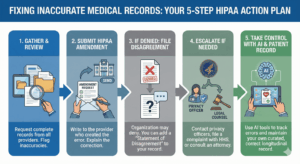
What to Do If There Is Inaccurate Data in Your Medical Record
The chart that does not match you You probably discovered the inaccurate medical records error because something routine went wrong: a prior authorization denied, a
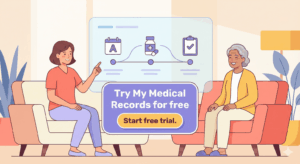
From Chaos to Clarity: A Family Caregiver’s Guide to Unified Health Records
Here’s what nobody tells you about caregiving: The hardest part isn’t watching your loved one struggle with their diagnosis. It’s trying to keep track of
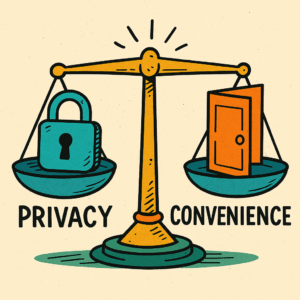
Privacy vs Access: Finding the Right Balance in Your Digital Health Record
Healthcare interoperability is the ability of different healthcare systems, devices, and applications to seamlessly share, understand, and use patient data across organizations and geographic boundaries.
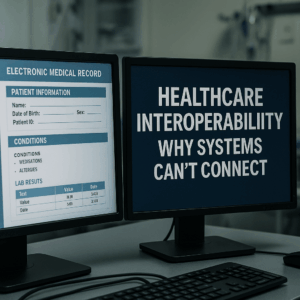
Healthcare Interoperability: Why Systems Can’t Connect
Healthcare interoperability is the ability of different healthcare systems, devices, and applications to seamlessly share, understand, and use patient data across organizations and geographic boundaries.

How to Merge Medical Records from Multiple Doctors and Avoid Errors & Duplicates
Learn how to merge medical records from multiple doctors, avoid duplicate entries, and reduce errors. Use AI tools like My Medical Records to simplify the process.

What Medical Records Do Insurance Companies Have Access To?
Wondering what medical records insurance companies can access? Learn what’s legally allowed, how to protect your privacy, and how tools like My Medical Records help you stay in control of your health data.

